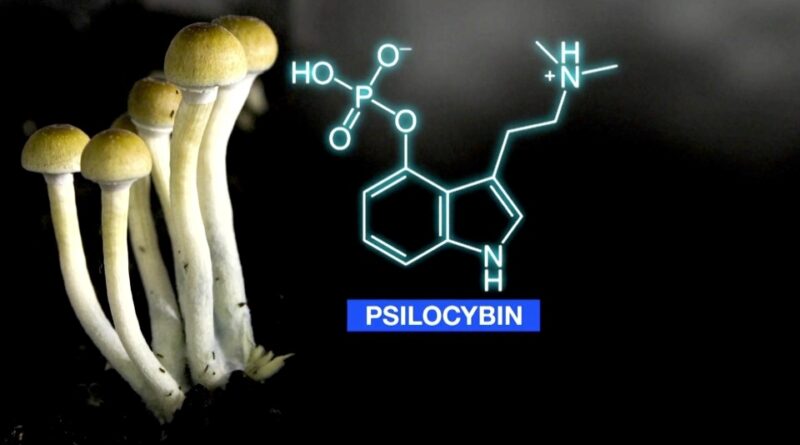Psilocybin Therapy without the Hallucinations
[Please note that this page contains affiliate links. If you choose to purchase after clicking a link, I may receive a commission at no extra cost to you.]
Psilocybin Therapy without psilocybin, the active ingredient that causes hallucinations, can work and have it.
University of Maryland School of Medicine (UMSOM) researchers have shown that the psychoactive chemical in “magic mushrooms” is psilocybin therapy.
Psilocybin Therapy without the Hallucinations
It still works as antidepressant-like actions conducted in mice when blocking the psychedelic experience.
New studies have been recently published in PNAS, proposing that psychedelic therapy works in many ways positively in the brain.
Therefore, it seems most likely to deliver a fast-acting antidepressant therapeutic benefit without the requirement of a daylong guided therapy session(s).
Drugs like LSD, DMT, MDMA, and psilocybin without the psychedelic effects that cause hallucinations could release restrictions on who could obtain the treatment and at reduced pricing, making the advantages of psilocybin more obtainable to those in need.
In all studies done so far, the person being treated with psilocybin therapy stays under the care of a chaperon, which helps the person remain calm and encourages them throughout their all-day-long experience.

The Science Behind Psilocybin
This may include an altered view of time and space, hallucinations, and intense spiritual and emotional encounters.
Scientists in this field have long credited psilocybin’s helpfulness to the whole psychedelic experience, including the hallucinations associated with psilocybin therapy.
They were led by UMSOM MD/Ph.D. student Natalie Hesselgrave, for their study, the scientists used a mouse archetypal of depression in which mice were anxious from different stressors for numerous hours a day for about 2-3 weeks.
Although researchers have no way of measuring mouse moods, they measure their capability to work for incentives, such as drinking sugar rather than plain water.
People experiencing depression lose the mood for rewarding events. Likewise, anxious mice no longer favoured sugar water over plain water.
Finally, 24 hours after a dosage of psilocybin, the frazzled mice recovered their fondness for the sugar water, proving that the psychedelic reestablished the mice’s response to pleasure.
Psilocybin employs special effects in people by joining too and turning on receptors for serotonin.
The serotonin 2A receptor is recognized as accountable for the psychedelic effects like hallucinations under psilocybin therapy.
Hallucinating on Serotonin
To understand if the psychedelic properties of psilocybin were required for the anti-depressive advantages, the scientists treated the anxious mice with psilocybin and the drug ketanserin, which combines with the serotonin 2A receptor and prevents it from being spun on.
The scientists found that the anxious mice recovered their fondness for the sugar water in reply to psilocybin, even without the psychedelic receptor’s stimulation.
“These findings show that activation of the receptor causing the psychedelic therapy effect isn’t required for the antidepressant benefits, at least in mice,” says Dr. Thompson, “but the same experiment needs to be performed in depressed human subjects.”
He claims his scientists plan to research which of the thirteen other serotonin receptors locations are accountable for the antidepressant effects.
“This new study has interesting implications and shows that more basic research is needed in animals to reveal the mechanisms for how these drugs work so that treatments for these devastating disorders can be developed,” says Albert E. Reece, MD, Ph.D., MBA, Executive Vice President for Medical Affairs, University of Maryland Baltimore, and the John Z. and Akiko K. Bowers Distinguished Professor and Dean, University of Maryland School of Medicine.
Dr. Thompson and the University of Maryland Baltimore have filed a patent using psilocybin with drugs that block serotonin receptors’ location to treat depression, specifically the serotonin 2A receptors.
ECT Treatment for Schizophrenia
ECT treatment for schizophrenia places electrodes on the patients’ scalp and general anesthesia. A doctor will then conduct a minor electric shock directly to the brain.
It most likely targets the serotonin location where it blocks the 2A receptor and others like norepinephrine and epinephrine or adrenal glands.
ECT patients average 2-3 treatments per week for multiple weeks.
Along with each treatment, it causes a minor controlled seizure.
Doctors aren’t sure why, but ECT resets serotonin. Psilocybin therapy can do the same thing without the nasty side effects.
Try the psychedelic app called Lumenate, it gives you a DMT-like experience through specific lighting from your phone’s flash, and the use of science creates a similar DMT experience.
Sources:


